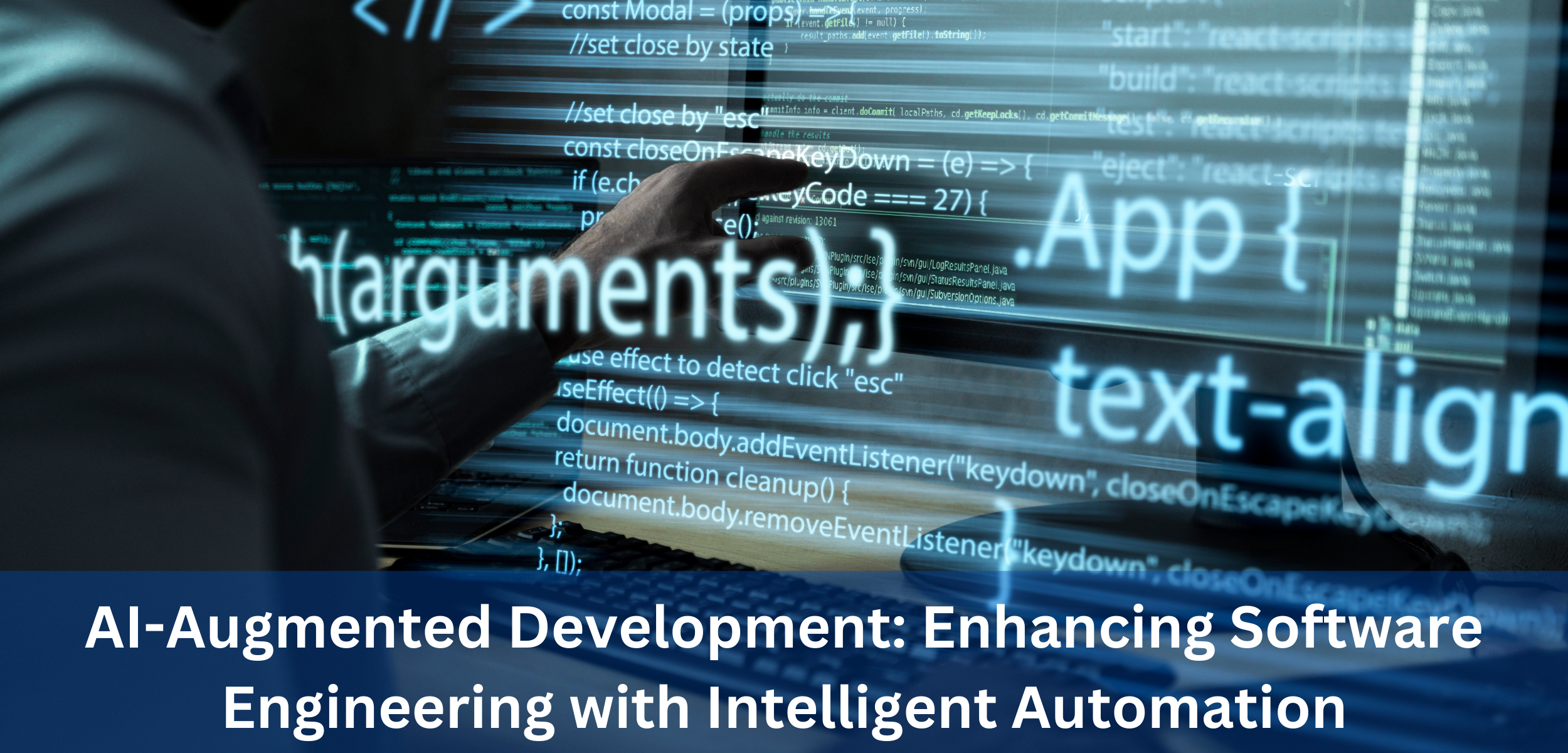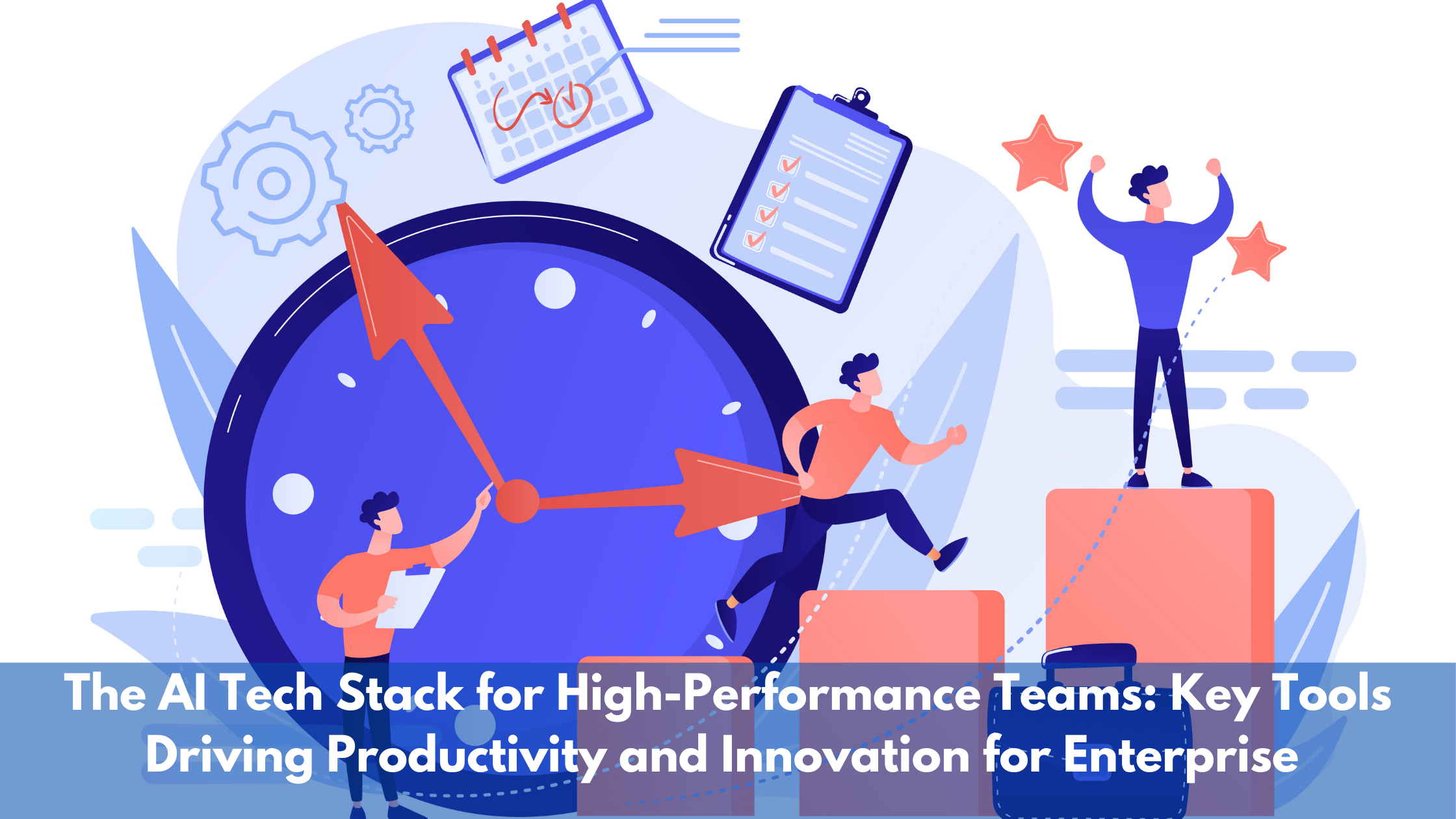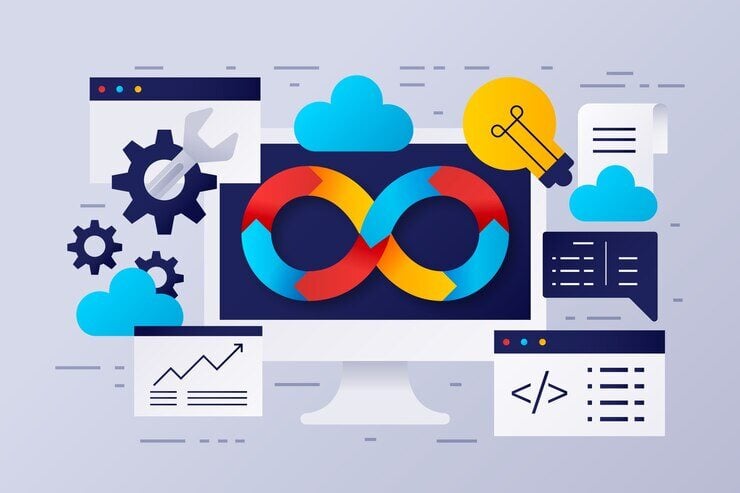Artificial intelligence (AI) is profoundly transforming software development, leading to significant enhancements in productivity and efficiency. For instance, JPMorgan Chase reported a 10% to 20% increase in software engineers' efficiency after integrating an AI coding assistant. (Source: Reuters)
Furthermore, McKinsey research indicates that generative AI has the potential to improve developer productivity by 35% to 45%, surpassing previous advancements in engineering efficiency. (Source: McKinsey)
By automating repetitive tasks, optimizing performance, and identifying security vulnerabilities, AI is significantly improving efficiency and software quality. This article explores how AI enhances the development process, the key tools driving this shift, and how AI-augmented practices compare to traditional development methodologies.
AI’s Role in Software Development
AI-driven development frameworks leverage machine learning models, natural language processing (NLP), and automation to enhance the software engineering lifecycle. These technologies streamline coding processes, minimize human errors, and improve the overall maintainability of applications.
Key Technologies Enabling AI-Augmented Development
- Machine Learning Algorithms: Train on extensive code repositories to predict and suggest optimized code patterns.
- Natural Language Processing (NLP): Converts human-readable commands into executable code, reducing manual syntax input.
- Automated Debugging and Code Review: Identifies inefficiencies, security risks, and logical inconsistencies in real-time.
- Intelligent Code Completion: AI-based tools analyze existing code structures to provide context-aware suggestions.
- Self-Optimizing Systems: Machine learning-driven frameworks adapt based on historical project data to enhance efficiency.
AI Applications in Software Engineering
AI is reshaping multiple stages of the development process, improving accuracy and accelerating time-to-market.
#1 AI-Powered Code Generation
Advanced AI-driven coding assistants, such as GitHub Copilot, Cursor AI, and Amazon CodeWhisperer, facilitate intelligent code recommendations based on contextual data. These tools assist developers in generating syntax-correct code with reduced manual effort. The growing investment in AI coding assistants underscores their transformative potential in software engineering.
#2 Automated Debugging and Code Quality Assurance
AI-powered static and dynamic code analysis platforms, including SonarQube, DeepCode, and Codiga, assess codebases for vulnerabilities, performance inefficiencies, and security flaws. These tools provide real-time insights, enhancing code reliability and security.
#3 AI-Enhanced Software Testing
AI-driven testing platforms such as Testim, Mabl, and Functionize automate test case generation, execution, and failure prediction, significantly reducing testing overhead while ensuring robust software quality. A substantial number of development teams have replaced a significant portion of manual testing with automation, indicating a shift towards AI-driven testing processes. (Source: Statista)
#4 Performance Optimization and Code Refactoring
AI frameworks optimize software performance by analyzing execution logs, detecting inefficiencies, and recommending refactoring strategies. For example, AI has the potential to fundamentally transform the development of software products, increasing the pace of the process and the quality of the final output. (Source: McKinsey)
#5 Low-Code and No-Code Development Acceleration
AI-driven low-code and no-code platforms empower business analysts and non-developers to build applications with minimal programming expertise. Solutions such as Microsoft Power Apps and Mendix enable rapid development cycles.
The low-code market is projected to approach $50 billion by 2028, reflecting the growing adoption of these platforms. (Source: Forrester)
AI Coding Tools and Their Capabilities
A wide array of AI-powered tools assist developers in enhancing productivity, security, and efficiency.
|
Tool |
Functionality |
Key Features |
|
GitHub Copilot |
AI-driven code autocompletion |
Suggests full-function implementations based on context |
|
Cursor AI |
Context-aware code recommendations |
Learns from project-specific patterns to enhance predictions |
|
Codiga |
AI-powered static code analysis |
Detects vulnerabilities and enforces coding standards |
|
DeepCode |
Intelligent security and bug detection |
Provides real-time insights for secure development |
|
SonarQube |
Code quality and performance optimization |
Identifies inefficiencies, security flaws, and maintainability issues |
|
Testim |
AI-driven automated testing |
Predicts test failures, improves test case efficiency |
|
Mendix |
No-code/low-code application builder |
Simplifies business process automation for non-developers |
Industry trends indicate that a significant percentage of developers using AI coding tools have reported measurable increases in efficiency and code quality. (Source: Statista)
Ethical Considerations and Regulatory Compliance
AI is transforming development, but it also presents challenges in data privacy, security, and intellectual property rights. How can businesses mitigate these risks?
With AI’s growing role in software engineering, ethical concerns and regulatory frameworks must be addressed.
1. AI Bias and Ethical Coding Practices
Machine learning models are trained on existing datasets, which may introduce biases into AI-generated code. Developers must adopt responsible AI practices to ensure fair and unbiased software solutions.
2. Intellectual Property and Ownership Issues
Uncertainty remains regarding the legal ownership of AI-generated code. Companies must establish guidelines on whether AI-assisted code contributions require attribution or fall under proprietary rights.
3. AI Regulations and Compliance Standards
As AI technologies evolve, regulatory bodies such as ISO/IEC, NIST, and GDPR are introducing compliance frameworks to govern AI-based software development. Organizations must stay informed about these regulations to ensure compliance.
Conclusion
AI-augmented development is driving a new era of software engineering by improving efficiency, security, and overall quality. As organizations embrace AI-driven coding assistants, automated testing, and intelligent code reviews, they must also address ethical considerations and compliance requirements.
To leverage AI-driven development solutions tailored to your business needs, partner with Evermethod, Inc., Our expertise in AI-based software engineering and digital transformation ensures your organization stays ahead in an evolving technology landscape.
Contact Evermethod, Inc., today to explore how AI can enhance your software development processes.
Get the latest!
Get actionable strategies to empower your business and market domination
.png?width=882&height=158&name=882x158%20(1).png)

.png/preview.png?t=1721195409615)

%2013.png)


